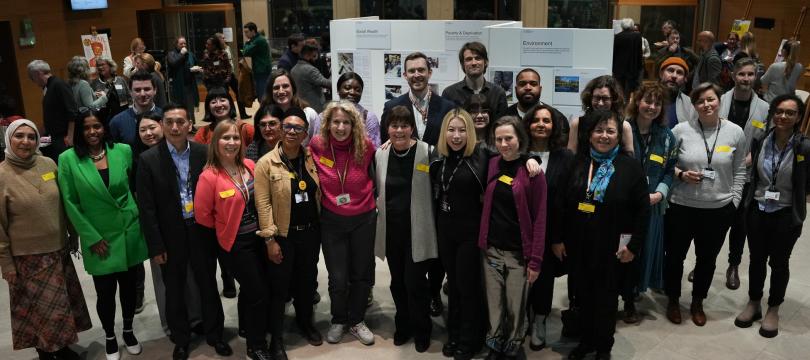Responsible Research and Innovation in practice
In this blog we share our experiences of putting RRI into practice and invite you to join a conversation about how, as a sector, we can shape this emerging field of practice.

06 / 10 / 2020
Do you find that your work in public engagement is increasingly crossing over with Responsible Research and Innovation (RRI) - or Responsible Innovation (RI)? In this blog we share our experiences of putting RRI into practice and invite you to join a conversation about how, as a sector, we can shape this emerging field of practice.
What is Responsible Research and Innovation?
RRI is a science policy framework and key action of the European Commission’s Horizon 2020 funding programme, which frames it as “an approach that anticipates and assesses potential implications and societal expectations with regard to research and innovation, with the aim to foster the design of inclusive and sustainable research and innovation”. RRI seeks to align science and technology research and innovation with the needs and values of society. This is mirrored in the UK by RI. EPSRC’s AREA framework for RI suggests this approach should include: Anticipation of potential futures; Reflection on motivations and purposes of the research; Engagement with relevant stakeholders; and Action on the outcomes of these processes. As such RI & RRI share common values and purposes with contemporary public engagement.
What we have learnt
Our RRI & RI work at the University of Bristol is practical and applied, rooted in the practice of public engagement. We’ve taken opportunities offered by various projects to experiment with different methods and develop a practitioner-led approach. Here are some of the things we’ve learnt.
- Working with creative practitioners is really effective in opening up new conversations
On the European Commission-funded project Synenergene, we developed a theatre production to engage young people in thinking about synthetic biology and its applications, working with BrisSynBio and Kilter Theatre. The play, Invincible, immersed audience members in a future world where synthetic biology was common. With characters to invest in and a narrative to follow, it led to in-depth and nuanced conversations about the societal implications of the research amongst the researchers, cast, young people and audiences.
We built on this in our RRI Residential with BrisSynBio, alongside artist collective ONCE, where researchers collaborated with artists to explore new perspectives on responsibility in science. Stepping outside their comfort zones, the engagement sparked new conversations and approaches to their research. The cohort also developed a strong sense of community, continuing to meet up for support in navigating issues of responsibility in their work.
- Researchers need support
Academics face familiar challenges in embedding RRI in their work as they do with public engagement, including needing time and resources, reward and recognition, and to develop their skills. In the European Commission-funded project, PERFORM we created a training programme for early career researchers, with a corresponding toolkit. We explored philosophy of science, ethics, replicability, engagement and RRI, and gave the researchers time and space to regularly get together for workshops and discussion. We’re now building on these principles in our RI and public engagement training for EPSRC-funded Centres for Doctoral Training. RI has been helpful in framing engagement in science and engineering, taking students beyond “informing the public” and highlighting the importance of exploring the ethics and potential futures of their research with communities.
- If you talk the talk you must walk the walk
During PERFORM, we realised how important it was that the RRI principles we shared with researchers were applied to ourselves as a team, which can be difficult with the constraints of budget, time and resources. This collaborative project opened our eyes to the need to be critically reflective about our own responsibilities in the project and how we worked together, applying the principles of RRI directly to our work.
What are we curious about?
This emerging area of policy and practice is a key part of the future for science and engineering. We are also interested in how these principles play out within commercially funded research, as well as publicly funded research, and are exploring this in Re-Cognition, a project involving an international consortium of publicly funded researchers and engineers in industry.
We know there are lots of interesting projects and approaches to exploring the ethical and social implications of research in the public engagement sector, and we’re keen to create a place where we can share our ideas, and consider if and how RRI can transform our practice as engagement practitioners, our projects, and our work to more effectively embed engagement in research.
Authors:
Hannah Berg, Re-Cognition Project Coordinator
Mireia Bes, Public Engagement Associate
Ellie Cripps, Public Engagement Manager
Ellie Hart, Re-Cognition RRI Coordinator
Viv Kuh, Lecturer in Responsible Innovation
